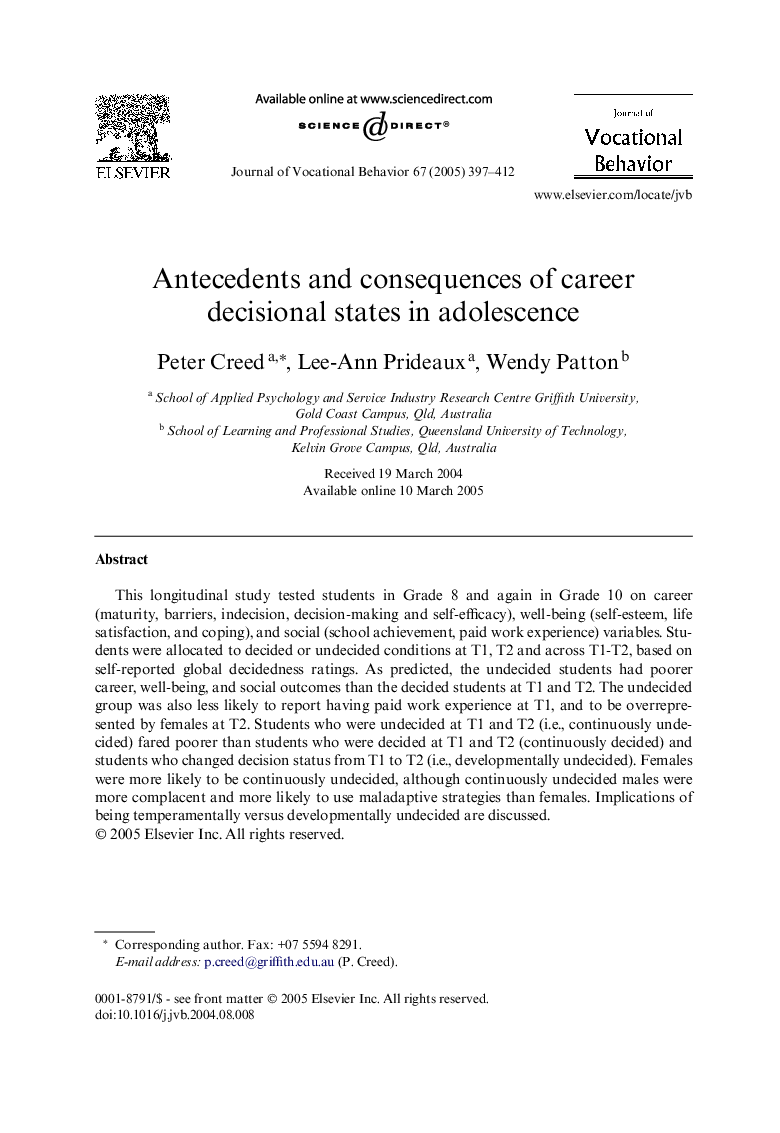| Article ID | Journal | Published Year | Pages | File Type |
|---|---|---|---|---|
| 10439138 | Journal of Vocational Behavior | 2005 | 16 Pages |
Abstract
This longitudinal study tested students in Grade 8 and again in Grade 10 on career (maturity, barriers, indecision, decision-making and self-efficacy), well-being (self-esteem, life satisfaction, and coping), and social (school achievement, paid work experience) variables. Students were allocated to decided or undecided conditions at T1, T2 and across T1-T2, based on self-reported global decidedness ratings. As predicted, the undecided students had poorer career, well-being, and social outcomes than the decided students at T1 and T2. The undecided group was also less likely to report having paid work experience at T1, and to be overrepresented by females at T2. Students who were undecided at T1 and T2 (i.e., continuously undecided) fared poorer than students who were decided at T1 and T2 (continuously decided) and students who changed decision status from T1 to T2 (i.e., developmentally undecided). Females were more likely to be continuously undecided, although continuously undecided males were more complacent and more likely to use maladaptive strategies than females. Implications of being temperamentally versus developmentally undecided are discussed.
Related Topics
Social Sciences and Humanities
Business, Management and Accounting
Marketing
Authors
Peter Creed, Lee-Ann Prideaux, Wendy Patton,
